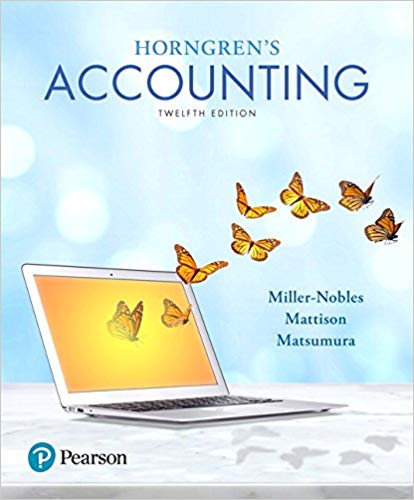Refer to the Hunter Valley Snow Park Lodge expansion project in Short Exercise S26-4 and your calculations
Question:
Refer to the Hunter Valley Snow Park Lodge expansion project in Short Exercise S26-4 and your calculations in Short Exercises S26-5 and S26-6. Assume the expansion has zero residual value.
Refer to Short Exercise S26-5 and S26-6,
Consider how Hunter Valley Snow Park Lodge could use capital budgeting to decide whether the $11,000,000 Snow Park Lodge expansion would be a good investment. Assume Hunter Valley's managers developed the following estimates concerning the expansion:
Number of additional skiers per day ................................................ 121 skiers
Average number of days per year that weather conditions
allow skiing at Hunter Valley ....................................................... 142 days
Useful life of expansion (in years) ................................................... 7 years
Average cash spent by each skier per day ........................................... $ 241
Average variable cost of serving each skier per day ................................... 83
Cost of expansion ................................................................ 11,000,000
Discount rate .............................................................................. 10%
Assume that Hunter Valley uses the straight-line depreciation method and expects the lodge expansion to have a residual value of $600,000 at the end of its seven-year life.
Requirements
1. Will the payback change? Explain your answer. Recalculate the payback if it changes. Round to one decimal place.
2. Will the project's ARR change? Explain your answer. Recalculate ARR if it changes. Round to two decimal places.
3. Assume Hunter Valley screens its potential capital investments using the following decision criteria:
Maximum payback period .................................... 5.0 years
Minimum accounting rate of return ........................... 18.00%
Will Hunter Valley consider this project further or reject it?
Capital BudgetingCapital budgeting is a practice or method of analyzing investment decisions in capital expenditure, which is incurred at a point of time but benefits are yielded in future usually after one year or more, and incurred to obtain or improve the... Payback Period
Payback period method is a traditional method/ approach of capital budgeting. It is the simple and widely used quantitative method of Investment evaluation. Payback period is typically used to evaluate projects or investments before undergoing them,...
Step by Step Answer:

Horngrens Accounting
ISBN: 978-0134674681
12th edition
Authors: Tracie L. Miller nobles, Brenda L. Mattison, Ella Mae Matsumura





